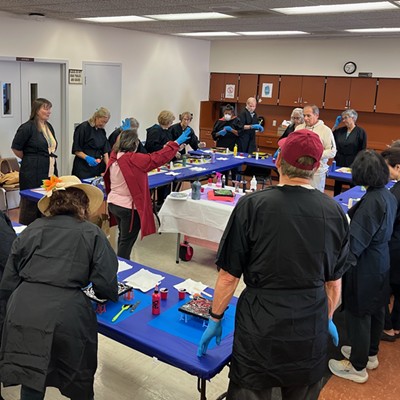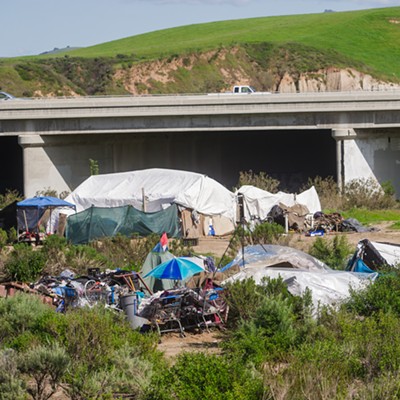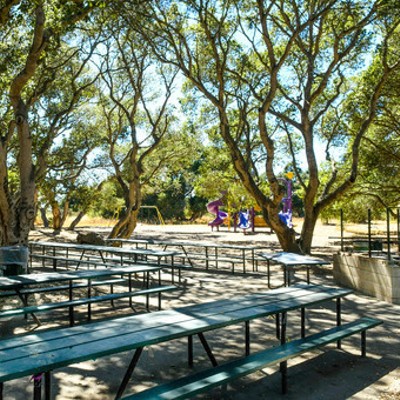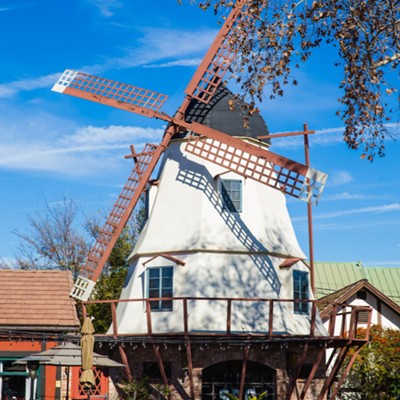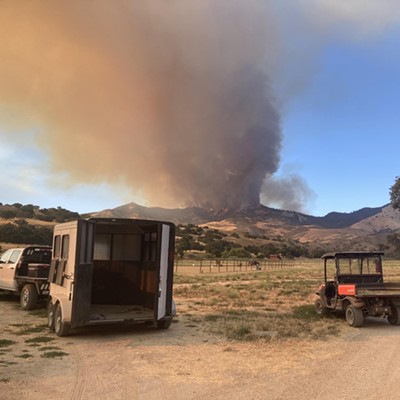The Santa Barbara County Planning Commission voted 4-1 (with 3rd District Commissioner John Parke dissenting) during its Jan. 31 meeting to approve a proposal to drill a single oil and gas “exploration well” in the Cuyama Valley.
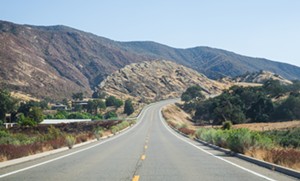
Michigan-based oil and gas company West Bay Exploration Company proposed the Hidden Canyon Test Well, which would be drilled 11,000 feet deep on Brodiaea Inc.’s North Fork Vineyard and tested for up to 24 days to see if it’s viable for production, county Energy, Minerals, and Compliance Division Planner Katie Nall told the commissioners during the meeting.
“No oil and gas production is proposed as part of this project and no permanent facilities are proposed besides the single wellhead,” Nall said, adding that West Bay will return to the commission with a more detailed production plan if production is feasible. Any waste produced will be trucked to McKittrick Waste Treatment Landfill near Bakersfield, and water needed for the project will be pulled from an on-site well, she said. West Bay is leasing the mineral rights from parties separate from Brodiaea Inc.—part of Harvard University’s endowment fund—but the mineral rights owners are not specified.
“Geologic reservoirs vary and the fluid captured varies as well from place to place. Our geoscientists have conducted detailed studies; the only way to truly answer the question as to whether it’s productive or not is to drill a well and analyze the information gleaned from the well,” said Tim Baker, the project manager for the Hidden Canyon Test Well Production Plan.
While the company is concerned with greenhouse gas emissions and is “embracing all forms of energy,” West Bay thinks the best approach is to consider existing energy sources in order to provide a sustainable transition to clean energy, Baker said.
Cuyama residents approached the Planning Commission during public comment with groundwater and environmental impact concerns over drilling a test well this deep and the potential for increased oil production in the Cuyama Valley and asked the commission to deny the project or require a full environmental impact report.
“I ask you to consider this permit in the same context you consider other Cuyama issues that come before you that prioritize groundwater supply and prioritize safety on Highway 166,” said Roberta Jaffe, a Cuyama resident and owner of Condor’s Hope vineyard.
The Cuyama Valley Groundwater Basin is one of California’s 21 critically overdrafted basins, and residents have no other water source to rely on, Jaffe said during public comment.
“The impacts of this 11,000-foot well on our groundwater supply are important to examine in detail. A lot of water is required to drill a deep oil well, yet there is no discussion in the [mitigated negative declaration] as to how much water will be needed to drill this well,” she said.
Drilling mud from a well this deep could also contain toxic heavy metals like arsenic, and there’s no specifics of what will be done to protect the groundwater supply of nearby ag fields or runoff prevention for the Cuyama River, Jaffe said.
Project manager Baker said he was sympathetic with the concerns expressed by Jaffe and fellow residents, and added that there’s been “a tremendous evolution” in drilling techniques and California law to protect the environment. If West Bay is successful and moves forward with a facility, they will install groundwater monitoring wells to keep track of the water quality.
Third District Commissioner Parke voted against the project, saying he’d like to see a full environmental impact report conducted. While several commissioners echoed the concerns, they said they had to evaluate this project as a testing site, not an entire oil production facility, and approve the project.
“It really goes against my grain having gone through the frost ponds project and seeing the effects of oil drilling and production in the Cuyama Valley,” said 1st District Planning Commissioner C. Michael Cooney—who represents the Cuyama Valley. “Like several of my fellow commissioners, I feel bound by the rules we are assigned to look at and staff’s recommendation is based on those rules, so this will be a rare vote for me in approving staff’s recommendation.”


